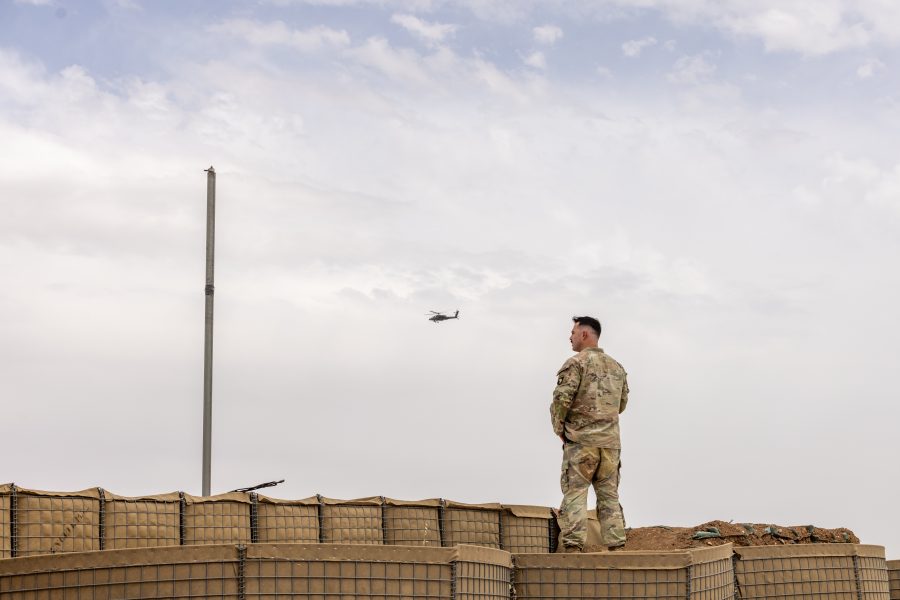The Islamic State militant group remains a threat in Syria and a U.S. military presence is still needed there to deal with it, Navy Vice Adm. Brad Cooper said in his confirmation hearing to become the next head of U.S. Central Command.
The Pentagon has already decided to significantly reduce the number of troops in the country from 2,000 to fewer than 1,000. But Cooper told the Senate Armed Services Committee on June 24 there is a continued need for at least some presence. And he argued that the complex situation in Syria needs to be weighed before making additional troop cuts.
“Presence is indispensable in the execution of the counter-ISIS mission today,” said Cooper, who currently serves as the deputy commander of CENTCOM, which oversees U.S. forces in the Middle East. “We have led it. We lead it today, and I anticipate we’ll lead it into the future. Every decision made on force posture is going to be conditions-based as I look to the future.”
Pentagon officials declined to say how many U.S. troops are currently in Syria in response to queries from Air & Space Forces Magazine.
U.S. troops were sent to Syria to advise and support the Kurdish-led Syrian Democratic Forces, which helped collapse the ISIS self-styled caliphate in 2019 and is now trying to prevent the group’s resurgence.
The U.S. and the SDF stayed clear of Syria’s civil war, which led to the overthrow of former Syrian President Bashar al-Assad, who fled to Russia.
The country’s new president is Ahmed al-Sharaa, who led the Islamist rebel group Hayʼat Tahrir al-Sham (HTS) that swept to power last December and has vowed to establish a tolerant, multi-ethnic state.
After months of deliberation, the U.S. has thrown its support behind the new Syrian leader. President Trump announced last month that he would lift sanctions on the country, a decision he made with encouragement from Saudi Arabia while Trump was in the Middle East.
Syria, however, is still coping with sectarian violence. In March, hundreds were killed, according to nongovernmental monitoring groups, in an attack in western Syria largely aimed at the Alawite sect, to which Assad belongs.
That has led to concern that the Islamic State group might seek to exploit tensions as it attempts to make a comeback. On June 22, Syrian authorities blamed the Islamic State group for blowing up a church outside Damascus, which killed at least 25 people.
“We are focused on this problem set every single day,” Cooper said when asked about the church bombing by Sen. Joni Ernst (R-Iowa). “ISIS remains a threat, and as we look to the future, and if confirmed, I will remain nose down on this threat. It is an absolute priority.”
Despite the tenuous situation in the country, Cooper said the U.S. was right to back Sharaa and that he was a vital partner in the campaign against ISIS.
“ISIS thrives in chaos,” Cooper said. “If the government of Syria, now seven months into their existence, can help suppress that ISIS threat, along with the U.S. forces in the region, that stability helps create our own security.”
U.S. Ambassador to Turkey Tom Barrack, who has also taken on the duties of the U.S. envoy to Syria, has been trying to support the new Syrian government. And the involvement of Sharaa’s government in the campaign against ISIS may determine if further U.S. troop cuts can be made safely in the months and years ahead.
“I think, given the dynamic nature of what’s happening today, that assessment [of required U.S. troops in Syria] in the future could look different than it does today, perhaps,” Cooper said.
